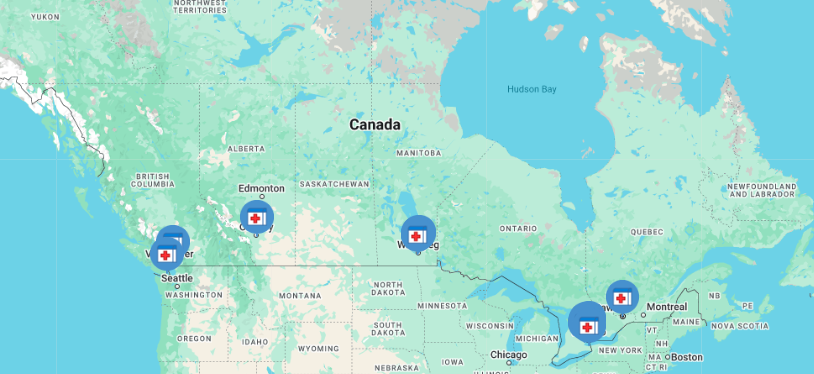GUIDED DEPRESSION MANAGEMENT PATHWAY
This 6-week one-on-one depression management program is designed to help you better understand the roots of your depression, develop effective coping strategies, and build long-term emotional strength. Through guided sessions, self-reflection, and practical tools, this program supports meaningful and sustainable improvement in your mental health.
You’ll also get access to a self-assessment and a curated library of mental health resources.
BUILD RESILIENCE
LEARN LIFE-LONG STRATEGIES
REDUCE DEPRESSIVE SYMPTOMS
GET PERSONALIZED SUPPORT
About the Program
Improved mood, reduced depressive symptoms, increased emotional awareness, and stronger day-to-day functioning.
DETAILS:

AWARENESS & INSIGHT
Begin by exploring the emotional, cognitive, and environmental factors contributing to your depression. With your therapist, you’ll identify thought patterns, triggers, and lifestyle elements that influence your mood. This phase provides the foundation for setting clear, achievable goals tailored to your needs.

COPING TOOLS & SELF-COMPASSION
Learn practical, evidence-based strategies to manage symptoms and increase motivation, including behavioral activation, thought-challenging techniques, and mindfulness. You’ll also focus on self-compassion and self-care to support healing.
Your therapist will help integrate these tools into your daily life with support and feedback along the way.

INTEGRATION & LONG-TERM WELLNESS
In the final phase, you’ll create a personalized wellness plan to maintain the progress you’ve made. With your therapist’s support, you’ll prepare for possible setbacks and develop resilience strategies to stay on track. You’ll leave with a toolbox of skills and a clearer path to emotional wellness.

AWARENESS & INSIGHT
Begin by exploring the emotional, cognitive, and environmental factors contributing to your depression. With your therapist, you’ll identify thought patterns, triggers, and lifestyle elements that influence your mood. This phase provides the foundation for setting clear, achievable goals tailored to your needs.

COPING TOOLS & SELF-COMPASSION
Learn practical, evidence-based strategies to manage symptoms and increase motivation, including behavioral activation, thought-challenging techniques, and mindfulness. You’ll also focus on self-compassion and self-care to support healing.
Your therapist will help integrate these tools into your daily life with support and feedback along the way.

INTEGRATION & LONG-TERM WELLNESS
In the final phase, you’ll create a personalized wellness plan to maintain the progress you’ve made. With your therapist’s support, you’ll prepare for possible setbacks and develop resilience strategies to stay on track. You’ll leave with a toolbox of skills and a clearer path to emotional wellness.
Meet Your Therapist
Depression is a common yet serious mental health condition characterized by persistent feelings of sadness, hopelessness, and a lack of interest in activities once enjoyed. Symptoms can include fatigue, difficulty concentrating, changes in sleep patterns, and feelings of worthlessness. To manage depression effectively, it is essential to adopt strategies such as regular physical activity, mindfulness and relaxation techniques, maintaining a healthy diet, and seeking support from friends, family, or mental health professionals.
– Rubina

Dr. Rubina Rahiman
PhD, RCT, CCC
Not sure where to start?
Try a self-assessment.
Our self-assessment is based on the Patient Health Questionnaire (PHQ-9), a widely used and accepted screening tool for assessing the severity of depression. Use of the assessment is anonymous. Our online assessment includes guidance regarding scoring as well as suggested follow-up based on the outcome of the assessment.
Always keep in mind that there are a variety of factors that can influence the reliability of the assessment, that your individual scores may vary over time, and, above all, that it is an assessment rather than a diagnostic tool. As such, this and similar self-guided assessments are not substitutes for professional guidance and should never be considered definitive.
DEPRESSION MANAGEMENT RESOURCES
The following list of resources is provided solely for educational purposes. WELL Mental Health & Wellness is not affiliated with any third-party content providers or sources.
Commonly Asked Questions
What are the common reasons people suffer from depression?
Common reasons for depression include genetic predisposition, chemical imbalances in the brain, traumatic experiences, chronic stress, loss or grief, major life changes, and underlying medical conditions, impacting emotional well-being significantly.
Can I overcome depression on my own?
While some people may manage mild depression independently through self-care strategies, seeking professional help is often crucial for effective recovery. Support from therapy, medication, and social connections can enhance healing.
What other issues are commonly associated with depression?
Common issues associated with depression include anxiety disorders, sleep disturbances, substance abuse, chronic pain, relationship problems, low self-esteem, and difficulty concentrating, often leading to a diminished quality of life.
Canada's largest network of therapists.
Our diverse network of qualified mental health professionals can support you with many mental health concerns. We believe that excellent client-therapist relationships are crucial for effective support, which is why you can choose your own therapist, and change therapists, at any time.

Supporting you, wherever you are.
As a part of the WELL Health Medical Centre team, we offer in-person therapy at select WELL Clinics. The majority of WELL Mental Health and Wellness services are covered by private insurance and corporate benefits plans.
Available at select WELL Clinics in British Columbia, Alberta, Ontario, and Manitoba.



